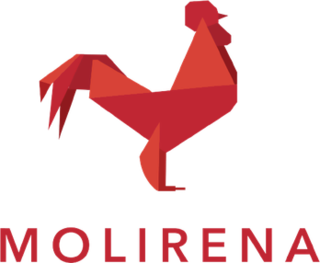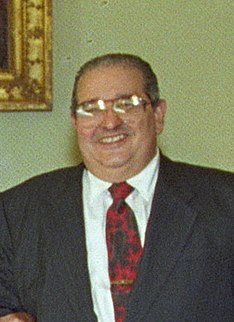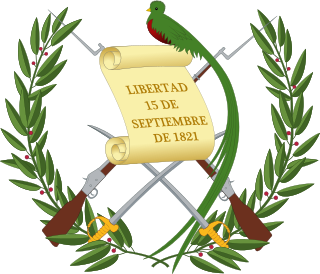Related Research Articles

The United Democratic Party (UDP) is one of the two major political parties in Belize. It is currently the main opposition party, having lost the 2020 Belizean general election, after previously holding the government across three prior terms. Founded as a centre-right conservative party, the UDP is led by the former minister of education Hon. Patrick Faber.

The Nationalist Republican Liberal Movement is a centre-right, pro-business, and liberal political party in Panama.

The People's Party is a Panamanian Christian democratic political party. Beginning in 1956, as Social Democratic Action, it was made up of middle-class professionals, intellectuals and students, with support from trade unions, particularly the Federation of Christian Workers. It went on to become one of Latin America's most conservative and anti-communist Christian democratic parties. The ideological foundation of the party is based on the social doctrine of the Catholic Church. The PP is a full member of the Christian Democrat International and Christian Democratic Organization of America.

People's Party of Panama is a communist party in Panama. It was founded on 4 April 1930 as the Communist Party of Panama, after Panamian communists broke away from the Labour Party. Early leaders of the PCP included Eliseo Echévez and Cristóbal Segundo. The PCP joined the Communist International and reached its apogee of popularity during and right after World War II. In 1943 the PCP changed its name to the People's Party of Panama.
Conservatism in North America is a political philosophy that varies in form, depending on the country and the region, but that has similar themes and goals. Academic study into the differences and similarities between conservatism in North American countries has been undertaken on numerous occasions. Reginald Bibby has asserted that the primary reason that conservatism has been so strong and enduring throughout North America is because of the propagation of religious values from generation to generation. This connection is strongest in mainstream Protestantism in the United States and both Protestantism and Roman Catholicism in Canada.

The Democratic Party of National Confidence was a Nicaraguan political party founded by Agustín Jarquín and Adán Fletes after a split from Social Christian Party (PSC) in 1986. The PDCN received legal status on appeal in 1989. It was part of the National Opposition Union (UNO) coalition in 1990 and had 5 seats in the National Assembly. Jarquín was the Sandinista National Liberation Front (FSLN) vice-presidential candidate in the 2001 elections. In 1992 the PDCN and the Popular Social Christian Party (PPSC) formed the Christian Democratic Union (UDC).
The Revolutionary Party of the Workers of Bolivia was a political party in Bolivia, formed in 1972 as the political wing of the National Liberation Army (ELN). PRTB was later move away from the foquismo line of ELN. PRTB published El proletario.

General elections were held in Antigua and Barbuda on 20 December 1951. The election was the first in Antigua and Barbuda to be held under universal suffrage. Vere Bird formed the Antigua Labour Party in 1951 and led the party to victory, winning all 8 seats on the legislative council. Voter turnout was 70.3%.

General elections were held in Antigua and Barbuda on 1 November 1956. The Antigua Labour Party retained all 8 seats and the party's leader Vere Bird became Minister of Trade and Production after a ministerial system of government was established. Voter turnout was 57.0%.
The Conservative Party was an Ecuadorian conservative party formed in 1869. Initially associated with the military of Ecuador the PC became one of the two great parties of state in the country, alternating in power with the Ecuadorian Radical Liberal Party. Its traditional support basis has been amongst the landowning classes, as well as merchants and artisans and it tended to favour a unitary structure rather than federalism.

The Republic of Panama held a general election on 6 May 1984, electing both a new President of the Republic and a new Legislative Assembly.

Panama held a general election on 7 May 1989, with the goal of electing both a new President of the Republic and a new Legislative Assembly. The two primary candidates in the presidential race were Guillermo Endara, who headed Democratic Alliance of Civic Opposition (ADOC), a coalition opposed to military ruler Manuel Noriega, and Carlos Duque, who headed the pro-Noriega Democratic Revolutionary Party (PRD).
Panama held a parliamentary election on 28 September 1980, electing a new National Legislative Council.
The Panama held a parliamentary election on 6 August 1978, electing both a new National Assembly of Community Representatives.
The Panama held a general election on May 12, 1968, electing both a new President of the Republic and a new National Assembly.
The Republican Party was a Panamanian right-wing political party.
The National Renewal Movement was a Panamanian neo-liberal political party.
Joseph Roney was a Haitian politician. Roney hailed from a peasant family. He studied at the Ecole normale supérieure of the State University of Haiti.

The Anti-Communist Unification Party was a right-wing political party in Guatemala.
References
- ↑ The Dictionary of Contemporary Politics of Central America and the Caribbean. Gunson, Phil.New York, NY: Academic Reference Division, Simon & Schuster, 1991. Pp. 191.
- ↑ Electoral Tribunal Archived 2010-01-19 at the Wayback Machine
- ↑ The Dictionary of Contemporary Politics of Central America and the Caribbean. Gunson, Phil.New York, NY: Academic Reference Division, Simon & Schuster, 1991. Pp. 191.
- ↑ Inforpress Central America report, V. 10. Inforpress Centroamericana. 1983. Pp. 94.
- ↑ The Dictionary of Contemporary Politics of Central America and the Caribbean. Gunson, Phil.New York, NY: Academic Reference Division, Simon & Schuster, 1991. Pp. 191.
- ↑ Political Parties of the Americas, 1980s to 1990s: Canada, Latin America, and the West Indies. Ed. by Charles D. Ameringer. Greenwood Press. 1992. Pp. 481.
- ↑ The Dictionary of Contemporary Politics of Central America and the Caribbean. Gunson, Phil.New York, NY: Academic Reference Division, Simon & Schuster, 1991. Pp. 191.
- ↑ Political Handbook of the world, 1993. New York, 1993. Pp. 637.
- ↑ Electoral Tribunal Archived 2010-01-19 at the Wayback Machine